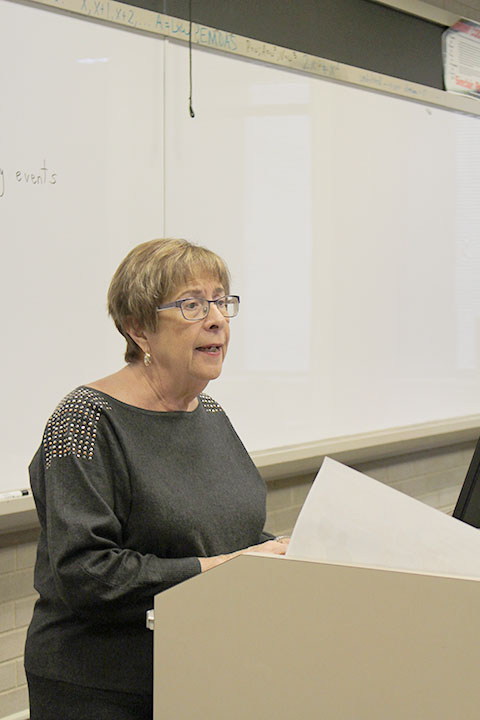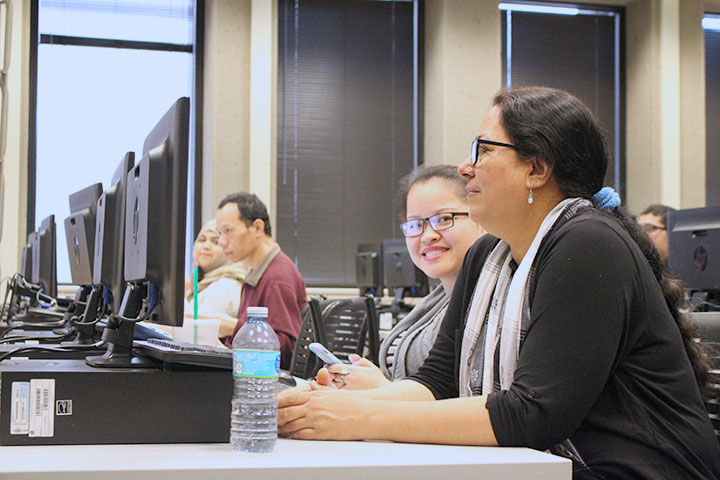International students who come to Sinclair to learn English as a second language may get a helping hand through conversation tables.
Barbara Gilbert, Professor of Developmental Language Arts, decided to try and help her students practice English after getting inspired by Wright State University’s Learning English for Academic Purposes (LEAP) program.
Gilbert started a conversation table where international students can come and practice the language with native English speakers.
“I was inspired and I thought ‘Oh my gosh, we need to give our students an opportunity to meet native speakers and to practice their English. So, that’s how this whole thing got started in a nutshell.”
Gilbert said the goal is not only for international students learn English, but native speakers will also have the opportunity to meet others.
“It’s a byproduct. Learn to meet some native speakers and the benefit for the native speakers is to meet international students.”
Phung Vo is a Sinclair student and permanent resident who is from Vietnam. After taking her ESL courses, she would like to go to school for nursing or maybe own her a restaurant someday that cooks authentic Vietnamese food.
“Three years ago, I didn’t speak English because I [was] shy around people,” Vo said.
She said that she was encouraged to speak English more often and the conversations tables are designed to help her do so.
“We need to give [international] students an opportunity to meet native speakers and to practice their English,” Gilbert said.
 For a refugee international student, Gilbert says they have a lot to learn in a short amount of time when they arrive in the United States. She hopes the conversation tables will help them out a little bit.
For a refugee international student, Gilbert says they have a lot to learn in a short amount of time when they arrive in the United States. She hopes the conversation tables will help them out a little bit.
“If you’re a refugee and you come to this country, you have to learn English, you have to get a job and a place to live in six months after you get here. And if you speak no English when you come, that’s a tall order,” she said.
According to Gilbert, many refugee students already have training in their country, but when they come to the United States, it isn’t worth anything.
“A lot of times our refugees have an advanced degree or a lot of training in a content area from their country, but when they come here it doesn’t do them any good,” she said.
Some international students, like Firas Al Khazaali who is from Iraq, came to America looking for a better life for them and their children, but it’s still hard to adjust to a new life.
“It’s hard. It’s not easy. It’s a new country… The meaning of family there is different from the meaning of family there. The family we have cousins, cousins, cousins. If I have my family, just my wife and my kids, that means I’m no good. That means I have problems in my life,” Khazaali said.
Gilbert hopes that, as the word gets out, more students can attend and not only help international students, but also that they can learn from what international students have to give.
Paul Carbonero, the ESL coordinator, also hosts a conversation table on Monday’s in the International Student Office.
Laina Yost
Managing Editor

